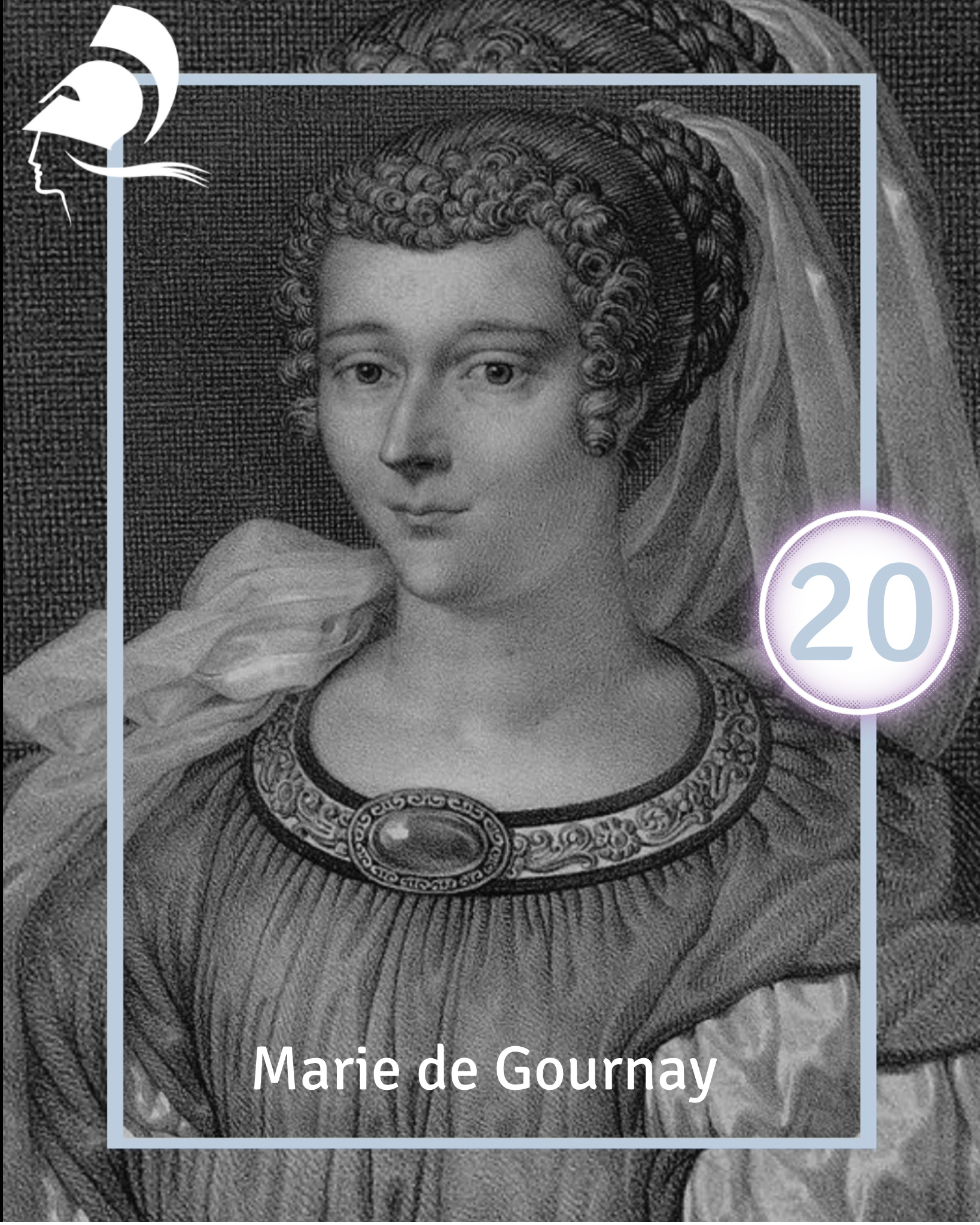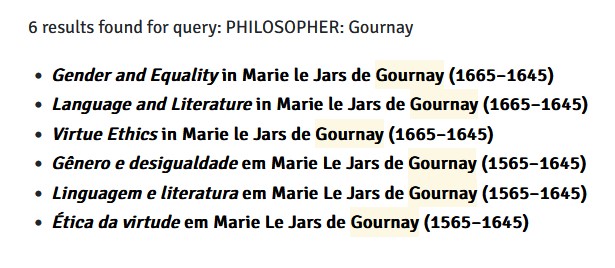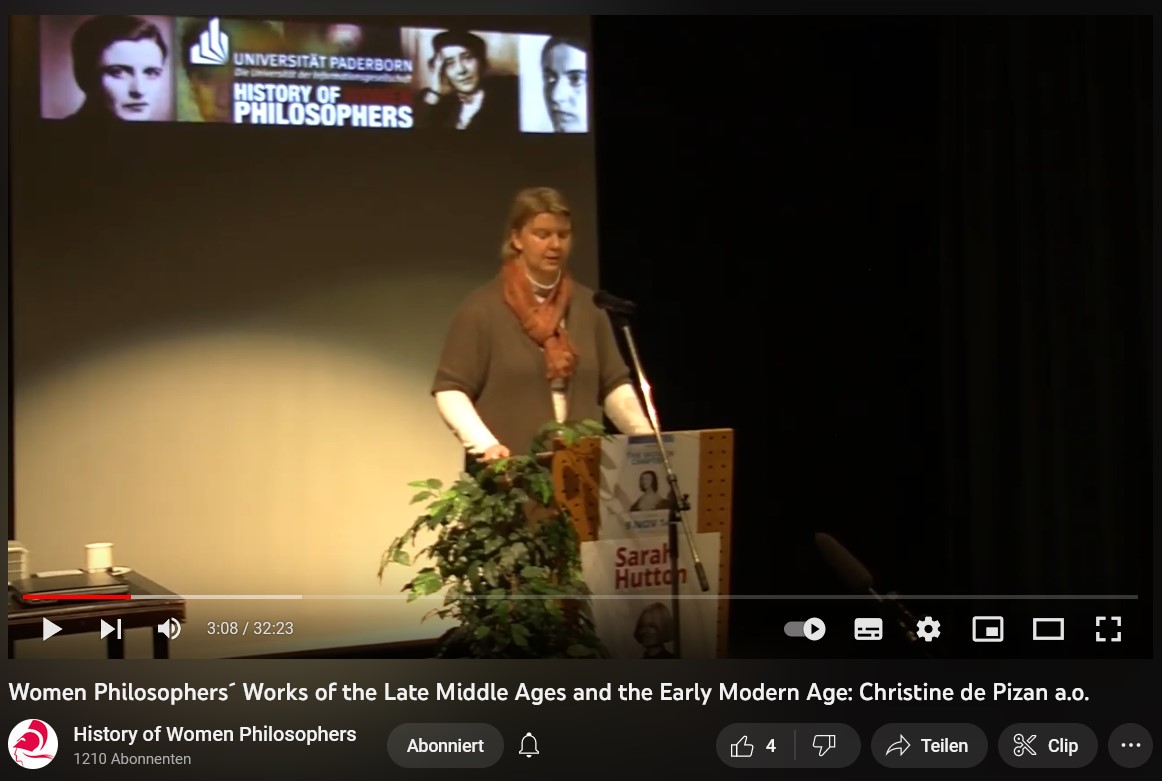Marie de Gournay harshly criticizes the prevailing inequality of the sexes and the exclusion of the womens ideas. She refers, among other things, to antiquity, which, in addition to important women philosophers, had other advocates of equality, Plato and Socrates:
“Plato, whom no one has ever disputed the title of ‘divine’, and consequently Socrates, whose interpreter and recorder he is […], ascribe to women in their republics and everywhere else the same rights, abilities and tasks to women. They emphasize, moreover, that they have sometimes surpassed all the men of their fatherland. In fact, they have invented some of the most beautiful arts, excelled in the most famous cities of antiquity, including Alexandria, the first of the empire after Rome, excelled and even unchallenged and superior to all men all kinds of disciplines and virtues taught. Thus it came to pass that these two philosophers, these wonders of nature, thought that they would give greater splendor to speeches of great weight believed, when they let them sound in their books from the mouth of Diotima or Aspasia. Socrates, who is himself the educator and teacher of the human race, does not shy away from telling Diotima his teacher and educator in some of the highest sciences.” (de Gournay 1998 in Hagengruber 1998, p. 62f, Translation Shari Wölker)
But where lies the source of the inequality and exlusion of women? In his article in our ECC, John J. Conley points out: “According to Gournay, the meager achievement by contemporary women in the arts and the sciences is due to irrational prejudices concerning their alleged inferiority to men and to the systematic denial of educational opportunities based upon that prejudice” (Conley 2019)
Ruth Edith Hagengruber highlights Gournay’s critique of male-dominated Christian dogmatics:
“Marie de Gournay sees the cause of misjudgments in the philosophy and theology by the mixture of material and intellectual and intellectual contents. Thus she writes with regard to the male image of God in Christian dogmatics: ‘Que si quelqu’un au reste est si fade; d’imaginer masculin ou feminin au Dieu, […]cestuy cy montre ä plein jour, qu’il est aussi mauvais Philosophe que Theologien’: Whoever imagines God as male or female, understands nothing of theology nor of philosophy, because the spiritual philosophy, because spiritual ideas cannot be equated with material realities. The two sexes have their purpose only in procreation, other differences of the sexes are the result of education.” (Hagengruber 1998, p. 23, Translation Shari Wölker)
We have six ECC articles on Gournay’s ideas:
For our New Voices Conference, 25-26 February 2022, Margaret Matthews gave a talk on “Marie De Gournay’s use of Sceptical Strategies”. You can watch her talk here:
See also Julia Lerius’s talk on “Women Philosophers’ Works of the Late Middle Ages” from our 2014 Workshop “Rewriting the History of Philosophy: The Women Chapters“. Lerius dedicates a part to Marie de Gournay:
References
Conley, John J. (2019). Gender and equality in Marie le Jars de Gournay (1665-1645). In: ECC, Encyclopedia of concise concepts by women philosophers, 1 Online-Ressource (2 pages). DOI: 10.17619/UNIPB/1-625
Gournay, Marie de (1998). Gleichheit von Männern und Frauen. Auszug entnommen aus: La fille d’Alliance de Montaigne. Marie de Gournay, Essai suivi de «l’Egalité des Hommes et des Femmes»: et du «Grief des Dames» avec variantes, des notes, des appendices et un portrait. Herausgegeben von Mario Schiff. Honor Champion, Paris 1910, S. 57-77. Die Übersetzung besorgte Eva Maria Rüther. Deutscher Taschenbuch Verlag. München: dtv.
Hagengruber, Ruth Edith (1998). Klassische philosophische Texte von Frauen. München: dtv.
You cannot copy content of this page











